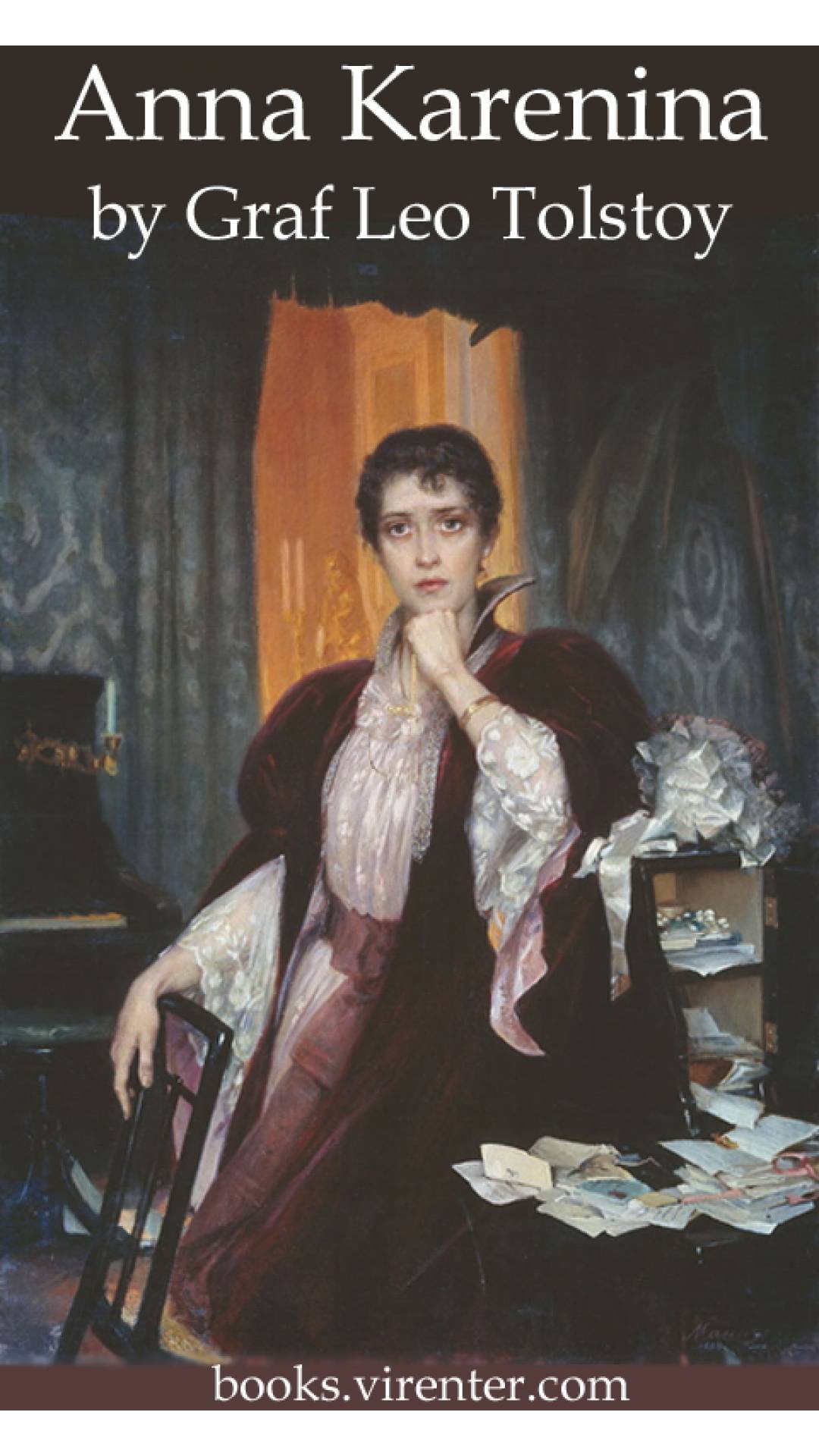Download free book'Anna Karenina'
Leo Tolstoy
Anna Karenina
Series: The Greatest World Books
This novel is a timeless literary masterpiece that delves into the complexities of love, passion, morality, and societal constraints in 19th-century Russia. The novel follows the tragic tale of Anna, a woman torn between duty and desire, as she navigates an ill-fated affair with Count Vronsky. Rich in psychological depth and social critique, Anna Karenina is a must-read for those who appreciate profound storytelling and intricate character development.
The novel is currently enjoying popularity, as demonstrated by a recent poll of 125 contemporary authors by J. Peder Zane, published in 'The Top Ten' in Time (the American weekly news magazine published in New York City, United States), which declared that Anna Karenina is the 'greatest novel ever written'.

Few novels capture the intricacies of human emotions and societal expectations as brilliantly as Anna Karenina by Leo Tolstoy. Published in serial form between 1875 and 1877, this novel remains one of the most influential works of world literature. Set in Imperial Russia, this book explores themes of love, betrayal, family, and the rigid constraints imposed by society. The novel revolves around the doomed love affair between Anna Karenina, a beautiful and sophisticated woman, and Count Alexei Vronsky, a charming military officer. Anna, trapped in a loveless marriage with Alexei Karenin, finds passion and excitement in her relationship with Vronsky. However, their romance is met with harsh societal judgment, leading Anna down a tragic path of emotional turmoil, despair, and self-destruction. One of the most striking aspects of Anna Karenina is its deep exploration of universal themes. Love and passion are central, yet Tolstoy does not romanticize them—he exposes their destructive potential when unchecked by reason or societal norms. The rigid social hierarchy of Russia during the 19th century serves as an unyielding backdrop, condemning those who defy its rules. Despite being written over a century ago, Anna Karenina continues to resonate with modern readers. Its themes of love, societal judgment, and personal freedom are timeless. The novel’s complex characters and emotional depth make it a masterpiece that transcends generations. Anna Karenina is more than just a love story—it is a powerful commentary on the human condition. Tolstoy masterfully portrays the struggles between passion and duty, individuality and conformity, making this novel an enduring classic. If you have yet to read it, now is the perfect time to immerse yourself in one of literature’s most celebrated works.Anna Karenina by Leo Tolstoy: A Timeless Tale of Love and Tragedy
Introduction
The Plot
Parallel to Anna’s story is the contrasting life of Konstantin Levin, a landowner seeking fulfillment in love, family, and rural simplicity. Levin’s journey reflects Tolstoy’s own philosophical inquiries about happiness, morality, and the meaning of life.
Themes and Symbolism
Symbolism plays a significant role in the novel. The train, for example, appears at crucial moments, symbolizing both fate and destruction. Anna’s psychological deterioration is mirrored by her increasing alienation from society, culminating in her tragic demise.
Why Anna Karenina Remains Relevant
Moreover, Tolstoy’s unparalleled storytelling, coupled with his keen philosophical insights, ensures that this book remains a cornerstone of classic literature. Whether you’re a fan of romance, historical fiction, or deep philosophical narratives, this novel offers something profound for every reader.
Conclusion